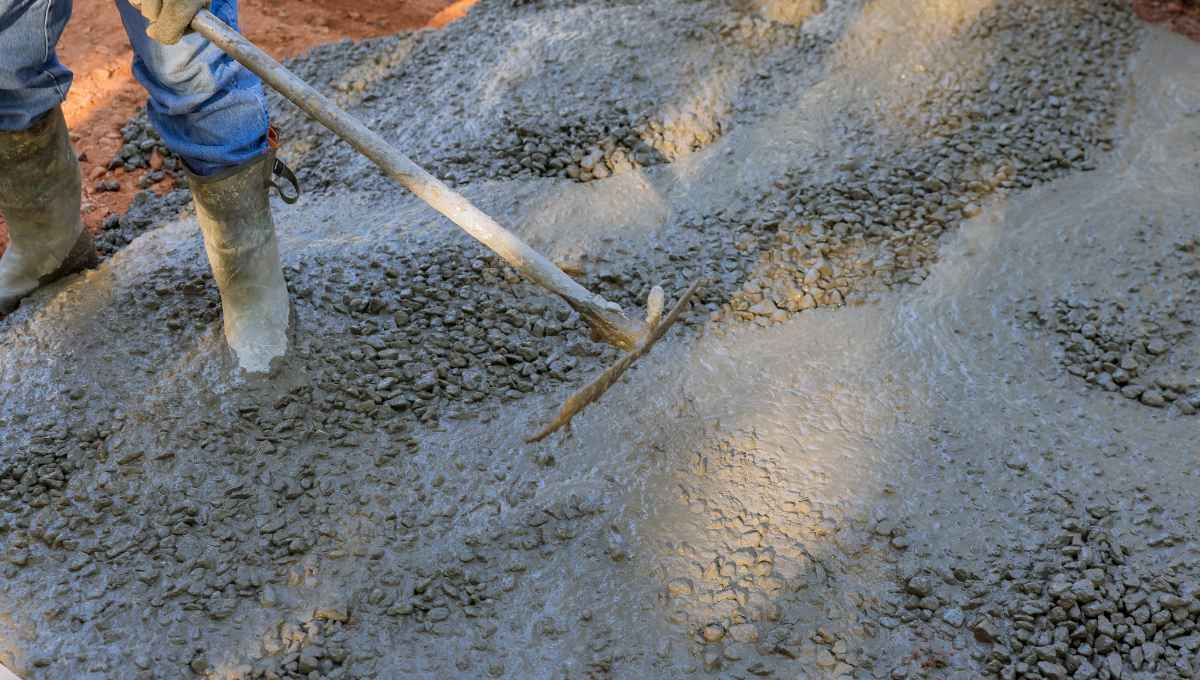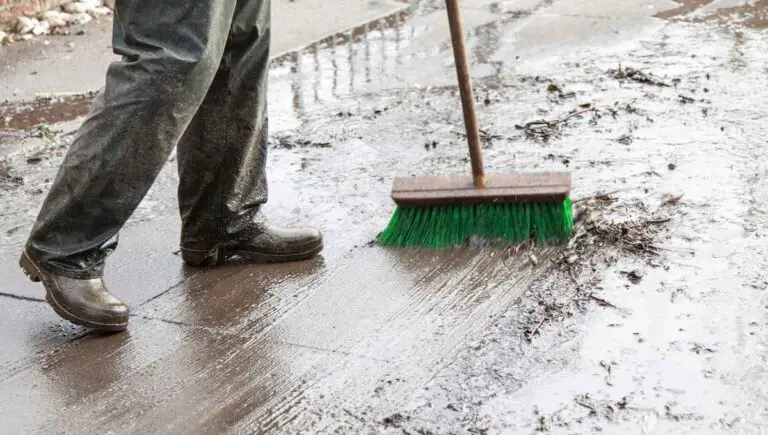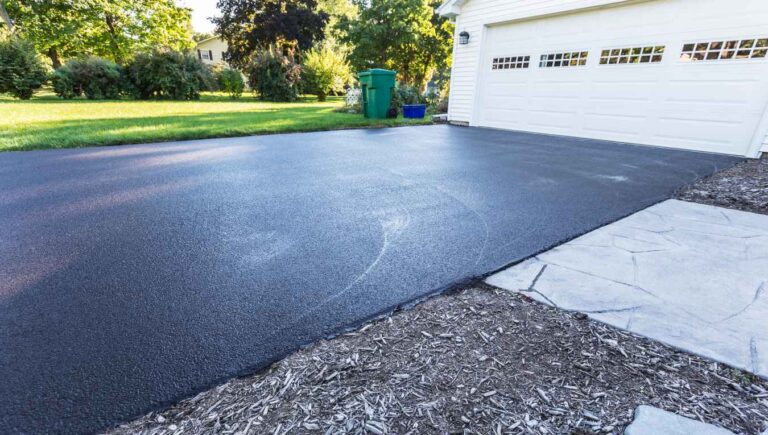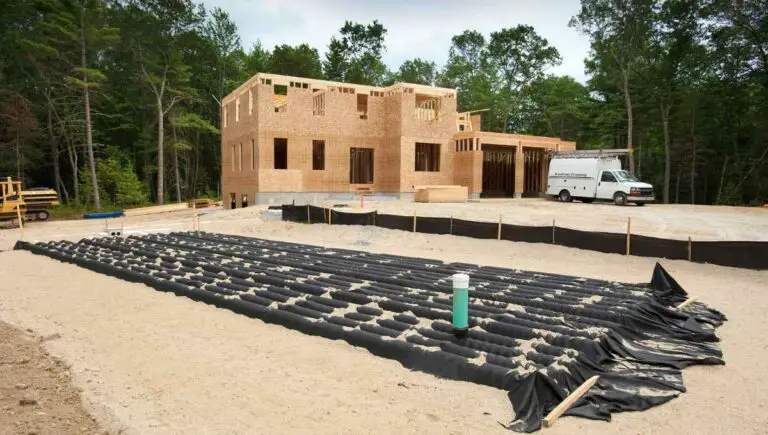Do I Need a Permit to Repave My Driveway? (Check This First)

If your driveway is showing signs of wear and tear, like cracks or potholes, it’s time to think about repaving it. But before you begin, it’s important to make sure you understand the legal requirements, including whether or not a permit is needed.
Typically, you do not need a permit to repave your driveway. However, you should still talk to your local Department of Transportation, as they may need to assess if your driveway’s repaving will impact drainage, sidewalks, and other city property.
It may not be legally required to obtain a permit before repaving your driveway, but there are still important factors to consider. In this guide, we will provide you with all the information you need to ensure a successful repaving project and a durable driveway.
This post contains affiliate links from Amazon and other stores. This means Yard Blogger may earn a commission if you make a purchase using any of our links. Please refer to our full affiliate disclosure policy for full details.
Here’s a Quick Pro Tip!
It’s vital you know whether or not you need a permit before you start your repaving project. Failure to redo your driveway correctly can lead to loss of funds and having to redo the driveway all over again, and no one wants that!
While you’re getting the paperwork around, think about the other important things you need in order to redo your driveway properly. We’ve put together a list of the most vital things you need in order to correctly repave a driveway. Check them out:
1. Pressure Washer – Before you start the repaving process, ensure your existing driveway is clean and ready to be touched up.
2. Concrete Resurfacer – If you’re using concrete to fix your driveway, this is what you need! Just add water.
3. Asphalt Resurfacer – Asphalt doesn’t have to be terrifying, and it doesn’t need a huge machine to pack down!
Deciding if You Need a Permit
While you typically will not need a permit for a simple driveway repaving project, there are times when it is necessary. For example, if your driveway leads to a town street or highway, the town may require a work permit, as you’ll be impeding traffic.
Failure to contact the state for a permit or oversight on your project may result in your project not being allowable, and you’ll have to repair your driveway again at your own expense so that it fits the state’s criteria.
Permit Needs for Concrete Versus Asphalt
The type of paving you want to do to your driveway won’t affect the need for a permit. Meaning whether you use concrete or asphalt won’t determine if you need to apply for a permit to repave your driveway.
Instead, the biggest factor that determines whether or not you’ll need a permit is where you live. If you live in town or connect to a town street, you’re more likely to need a permit than if you live somewhere rural.
One great tip is to check your town’s website before attempting a repaving project. Their sites will often state whether or not you need to apply for a permit for a repaving project. In addition, they’ll often state the requirements for repaving without a permit.
Zoning Permits
One other thing to check with your township about is whether or not you need a zoning permit for your project. Often, if you are planning on lengthening or widening your driveway in addition to repaving it, you’ll need to apply for a zoning project.
In addition, if your project involves the curb, sidewalk, driveway apron, or even the gutters in front of your house, it’s likely to need a permit. This way, the state can ensure the project won’t block its infrastructure.
Let’s Talk Legalities
According to the Pennsylvania Department of Transportation (PennDOT), the legal definition of a driveway is “every entrance or exit used by vehicular traffic to or from properties abutting a highway.”
Though other states may have slightly different definitions. For example, California law defines a driveway as “a paved portion of a public street providing an unobstructed passage from the roadway to an off-street area used for driving, servicing, parking, or otherwise accommodating motor vehicles.”
So, you can understand why it’s important to check your state’s statutes on what constitutes a driveway and whether or not you need a permit to build, repave, or otherwise change your driveway.
Deciding Between Repaving and Replacing Your Driveway
Now that we’ve gone over whether or not you’ll need a permit let’s chat a bit about what you’re planning on doing with your driveway. Sometimes, people think they need to repave their driveway, but the problem is deeper than that.
Did you know that if there are structural flaws in your driveway and you simply repave over the issues, it won’t actually help? The new concrete or asphalt will very quickly degrade, and you’ll just end up spending more time and money to fix the same problem again.
So how do you know when you should repave versus when you need to replace the driveway? There are a few signs to look out for.
When to Simply Repave Your Driveway
It’s time to repave your driveway when there are minor cracks over at least 30 percent of the surface or if there are other large issues in the asphalt.
In general, driveways need to be resurfaced or sealed at least every five years. It may need to happen even sooner if you are especially hard on your driveway. However, if there is just one large crack, you may want to consider simply patching it instead of repaving.
If the cracks are large enough to warrant a full repave, the good news is it’s entirely possible to repave your driveway yourself. It’ll cost less, though it will take some time. Follow these steps to repave your asphalt driveway; no contractor is required:
- Deep clean the driveway’s surface. For this step, you can either use your typical garden hose or, to ensure it’s as clean as possible, use a pressure washer. You want to ensure that all debris, including algae, mold, dirt, weeds, or other foreign objects, has been removed from the surface of your driveway. Then, use a stiff brush and a cleaner to scrub the surface. Rinse thoroughly and allow the driveway to dry completely; for at least 24 hours before proceeding to step two.
- Fill in all cracks and potholes. For cracks, you can use a crack sealer and a small sealing knife to ensure the cracks are completely filled. For larger potholes, you’ll need to use patches. Fill the hole with the patch filler and smooth it with your sealing knife.
- Apply your resurfacer. For this step, you’ll need to prepare the resurfacer beforehand so it’s ready when you are. Then, apply the resurfacer to the outer edges of your driveway and a line down the middle of the drive. Then, carefully and evenly spread the resurfacer in straight lines across the width of your driveway using a brush.
- Allow the resurfacer to dry completely. This will take multiple days, depending on the weather.
- Apply a coat of driveway sealant to protect the driveway. Use the same technique as the resurfacer, coating the edges and the middle and spreading it out in straight, even lines to ensure the entire surface is coated. Allow it to dry completely before use.
If you have a concrete driveway, the process is very similar. You’ll still need to fill in any cracks; then, instead of an asphalt resurfacer, you’ll use fresh concrete to create a new, smooth surface on your driveway. Make sure you use a concrete sealer after!
When to Replace Your Driveway Entirely
The biggest sign you need to replace your driveway, instead of simply repaving it, is if the foundation has been affected. If the foundation is cracked, unsteady, or has been otherwise damaged, it’s time to replace it entirely.
Typically, driveways need to be completely replaced every 20-30 years. However, if you live in places with extreme weather or if you often drive very heavy machinery over your driveway, it may need replacing sooner.
You’ll know it’s time to replace your driveway when there are multiple major holes too big to simply patch up. You may also experience an overabundance of cracks or have issues with the foundation.
If the foundation of your driveway has been compromised, there’s no option other than to replace it. Failure to replace a messed up foundation can result in your driveway collapsing entirely, which can harm you and your vehicles.
If you’ve decided it’s time to replace your old driveway, you’ll most likely want to hire a licensed contractor to do the job. They’ll coordinate with local authorities to get all the proper permits and do the job correctly.
The Average Lifespan of a Driveway and How to Extend It
Did you know that you can resurface your driveway more than once? Experts agree you can repave or resurface your driveway at least three times before it needs a full restore.
Remember, if you want to repave an existing asphalt driveway, you need first to repair any cracks or potholes, but you don’t need to remove the existing asphalt before repaving.
You can easily fix even large cracks as long as the foundation isn’t affected. You can safely add crack filler to your asphalt or concrete driveway. Just make sure you’re following all directions for use.
Keeping Your Driveway in Tip-Top Shape
Your driveway should last around 20 years, but if you want to keep it in top shape and avoid expensive repairs, there are a few things you should focus on.
- Keep it clean. Regularly power wash your driveway, and don’t allow mold or fungus to take hold.
- Use weed prevention. Even small weeds can have long, strong roots, which can disturb your driveway and eventually cause cracks and make your foundation unstable. An unstable foundation will need to be redone, and you don’t want that!
- Ensure proper drainage. One of the most common causes of cracks and potholes is groundwater that cannot drain properly. If you notice standing water on your driveway, talk to a professional.
- Repair cracks and potholes immediately. A new small crack may not seem like a big deal, but changing weather conditions and any introduction of water will make a small crack grow quickly. Best to fix them asap!
- Seal your driveway properly. New sealant should be used on your driveway at least every three years. This goes for both asphalt and concrete driveways!
You might also enjoy our post on Can You Pave a Driveway in the Winter?
Final Thoughts
Whether you have a concrete or an asphalt driveway, taking proper care of it can really extend its lifespan. That being said, after twenty-plus years, it’s going to need replacement.
If you are just repaving or resurfacing, doing this yourself is pretty easy; it just takes time, patience, and the proper tools. However, it’s best to call a professional if you need to replace the foundation.
Before starting any major project, including resurfacing, it’s always best to check in with your state’s Department of Transportation to see if you need to apply for any permits regarding your driveway.
Most states have ordinances in place when your home renovation affects the sidewalk or public road. This is typical to ensure that your renovation does not damage the city’s drainage or public sidewalks.
So, once you’ve obtained the necessary permits, you’re on your way! If in doubt, contact a professional contractor.
They will not only be able to replace your driveway, but they’ll also know all about the necessary permits, and you’ll save yourself a headache!






